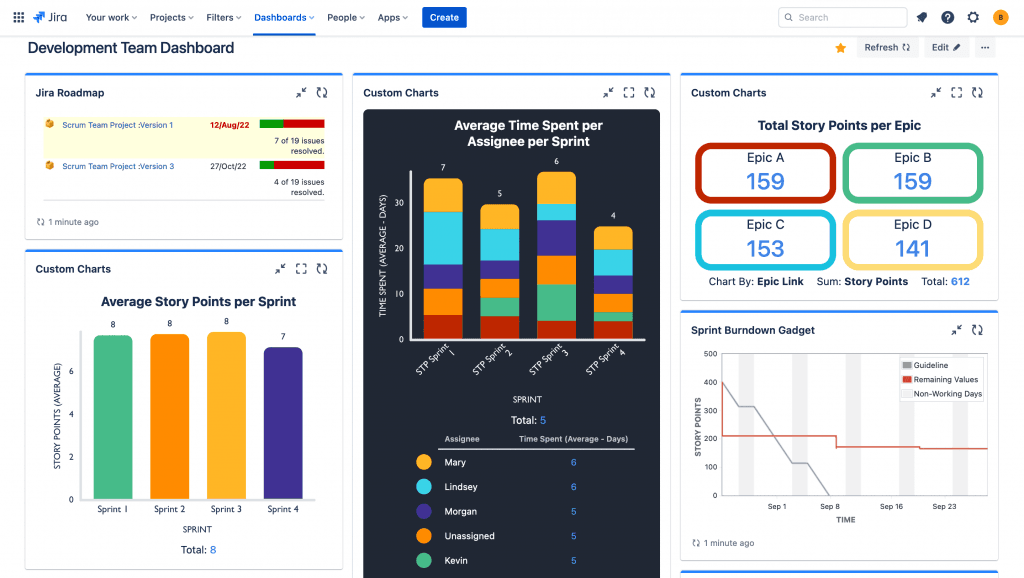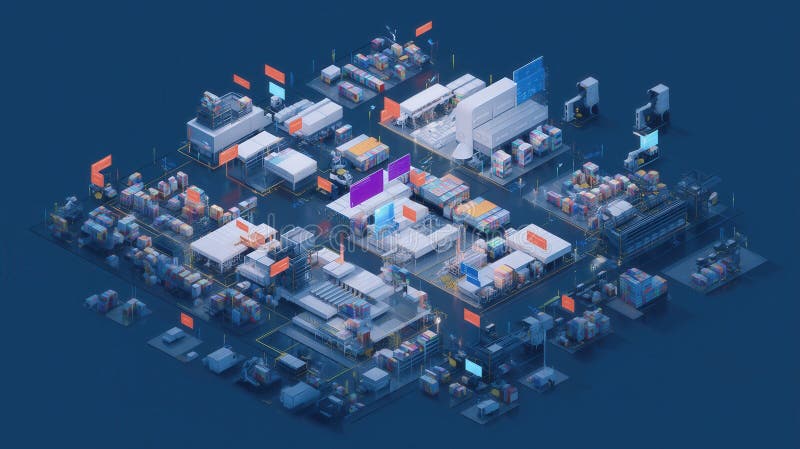Transforming Enterprise Operations: The Strategic Advantage of AI Agent Implementation
Unlocking Unprecedented Productivity Through Intelligent Automation
Discover how forward-thinking enterprises are leveraging AI agents to achieve 83% productivity improvements, transform operational efficiency, and build sustainable competitive advantages through intelligent automation that augments human capabilities rather than replacing them.
The Enterprise AI Agent Revolution
The enterprise landscape is experiencing a fundamental transformation as organizations move beyond traditional automation to embrace AI agents that can think, learn, and act autonomously. Unlike conventional automation tools that follow rigid scripts, AI agents represent a paradigm shift toward intelligent systems capable of understanding context, making decisions, and adapting to changing business conditions.

Recent global studies reveal that 83% of professionals familiar with AI believe it will augment human capabilities, leading to increased productivity and new forms of economic value. This shift represents more than technological advancement—it's a strategic evolution from reactive to proactive enterprise management systems.
Evolution Timeline: From Manual to Intelligent
timeline
title Enterprise Automation Evolution
2000s : Manual Processes
: Paper-based workflows
: Human decision-making
2010s : Basic Automation
: Rule-based systems
: Simple task automation
2020s : Smart Integration
: API-driven workflows
: Data-informed decisions
2024+ : AI Agent Intelligence
: Autonomous decision-making
: Predictive problem-solving
: Context-aware adaptation
Leverage PageOn.ai's timeline blocks to create compelling visualizations that demonstrate your organization's automation journey and future roadmap to stakeholders.
The current state of enterprise automation reveals significant limitations in traditional approaches. While robotic process automation (RPA) and workflow engines handle repetitive tasks effectively, they lack the intelligence to adapt, learn, or make complex decisions. AI agents bridge this gap by combining the reliability of automation with the cognitive capabilities of artificial intelligence, creating systems that can understand context, anticipate needs, and take proactive action across the entire intelligent agents industry ecosystem.
Core Enterprise Benefits and Value Propositions
Operational Efficiency Gains
- • Complex process breakdown into manageable, automated workflows
- • Dramatic reduction in manual effort and human error rates
- • Real-time decision-making capabilities across all departments
Cost Optimization
- • Quantifiable ROI through reduced operational overhead
- • Strategic resource redeployment to higher-value activities
- • Long-term financial impact optimization
ROI Impact Analysis
Scalability and System Integration
One of the most significant advantages of AI agent implementation is their non-disruptive integration approach. As enterprise AI solutions demonstrate, these systems don't require ripping and replacing existing infrastructure. Instead, they sit on top of CRMs, ERPs, file storage, service management platforms, and more—gathering context, acting on data, and closing the loop.
graph TD
A[AI Agent Layer] --> B[CRM Systems]
A --> C[ERP Platforms]
A --> D[File Storage]
A --> E[Service Management]
B --> F[Context Gathering]
C --> F
D --> F
E --> F
F --> G[Data Analysis]
G --> H[Intelligent Actions]
H --> I[Closed Loop Optimization]
style A fill:#FF8000,stroke:#333,stroke-width:2px,color:#fff
style F fill:#42A5F5,stroke:#333,stroke-width:2px,color:#fff
style I fill:#66BB6A,stroke:#333,stroke-width:2px,color:#fff
Create comprehensive system integration diagrams with PageOn.ai's AI Blocks to visualize how intelligent agents seamlessly connect with your existing technology stack, providing stakeholders with clear understanding of implementation scope and integration points.
Department-Specific Implementation Strategies
Finance and Accounting Transformation
In finance, AI agents revolutionize routine operations while supporting strategic analysis and planning. They help teams access both structured systems and unstructured documents, enabling faster operations with significantly reduced risk of error.

Automated Operations
- • Invoice processing and validation
- • Expense report automation
- • Regulatory compliance monitoring
Strategic Analysis
- • Predictive financial modeling
- • Risk assessment automation
- • Real-time performance reporting
Sales and Customer Experience Enhancement
Sales and customer experience teams leverage AI agents to move faster, personalize engagement at scale, and dramatically reduce administrative workload, allowing sales professionals to focus on relationship building and strategic account development.
Supply Chain and Manufacturing Intelligence
A compelling example comes from a global electronics company's implementation that creates an intelligent network of agents working together to manage inventory, maintain supplier relationships, monitor quality control, and schedule predictive maintenance. These agents don't just react to immediate needs—they anticipate potential issues and take proactive steps to prevent problems before they occur.

Manufacturing AI Agent Network
graph LR
A[Inventory Agent] --> E[Central Coordination]
B[Supplier Agent] --> E
C[Quality Control Agent] --> E
D[Maintenance Agent] --> E
E --> F[Predictive Analytics]
F --> G[Proactive Actions]
G --> H[Issue Prevention]
G --> I[Optimization Recommendations]
G --> J[Resource Allocation]
style E fill:#FF8000,stroke:#333,stroke-width:2px,color:#fff
style F fill:#42A5F5,stroke:#333,stroke-width:2px,color:#fff
style G fill:#66BB6A,stroke:#333,stroke-width:2px,color:#fff
Human Resources and Talent Management
HR departments benefit from AI agents through streamlined recruitment processes, personalized employee experiences, and data-driven workforce planning that transforms talent management from reactive administration to strategic organizational development.
Recruitment
Automated candidate screening and interview scheduling
Onboarding
Personalized training paths and progress tracking
Analytics
Performance insights and workforce optimization
Implementation Framework and Strategic Roadmap
Successful AI agent implementation requires a structured approach that balances technical capabilities with organizational readiness. Developing a comprehensive company AI transformation roadmap ensures systematic deployment and measurable outcomes across all phases of the initiative.
Assessment Phase
- • Current system audit and readiness evaluation
- • High-impact use case identification
- • Stakeholder alignment strategies
- • Change management planning
Deployment Phase
- • Natural language runbook creation
- • IT-independent customization setup
- • Phased rollout execution
- • Measurable milestone tracking
Optimization Phase
- • KPI establishment per department
- • Monitoring and adjustment protocols
- • Continuous improvement cycles
- • Strategic advantage measurement

Natural Language Runbook Creation
One of the most revolutionary aspects of modern AI agents is their ability to be configured using natural language instructions. Business users can describe what they want the agent to do and watch it execute complex workflows without requiring traditional programming knowledge.
sequenceDiagram
participant BU as Business User
participant NL as Natural Language Interface
participant AI as AI Agent
participant SYS as Enterprise Systems
BU->>NL: "When invoice exceeds $10K, get approval"
NL->>AI: Parse requirements and create workflow
AI->>SYS: Monitor invoice submissions
SYS->>AI: New $15K invoice detected
AI->>SYS: Route to approval workflow
AI->>BU: Send notification with status
Map out implementation timelines and dependencies using PageOn.ai's Deep Search for relevant case studies and best practices, creating visual roadmaps that align technical deployment with business objectives and stakeholder expectations.
Overcoming Implementation Challenges and Risk Mitigation
While the benefits of AI agent implementation are substantial, organizations must address common adoption barriers through strategic planning and proactive risk mitigation. Understanding these challenges early enables successful navigation of the transformation journey.
Common Adoption Barriers
Organizational Resistance
Fear of job displacement and change
Security Concerns
Data privacy and compliance requirements
Technical Integration
Legacy system compatibility issues
Strategic Solutions
Change Management
Comprehensive training and communication
Security Framework
Robust governance and compliance protocols
Gradual Integration
Phased approach with pilot programs

Building Organizational Confidence
Success in AI agent implementation requires more than technical execution—it demands cultural transformation. Organizations must build confidence in AI-driven decision making through transparent processes, clear accountability frameworks, and demonstrable value creation.
Leverage PageOn.ai's Vibe Creation to develop compelling stakeholder presentations that address concerns proactively, showcase success stories, and build organizational buy-in through clear visualization of benefits and implementation strategies.
Future-Proofing Your Enterprise with AI Agents
The evolution of AI agent capabilities continues to accelerate, with emerging trends pointing toward increasingly sophisticated autonomous business processes. Organizations that establish strong foundations now will be positioned to leverage next-generation capabilities as they become available, creating sustainable competitive advantages in an AI-first business landscape.
Emerging Capabilities
- 🧠 Multi-modal reasoning across text, voice, and visual data
- 🔗 Advanced AI agent tool chains for complex workflows
- ⚡ Real-time collaborative intelligence between agents
- 🎯 Predictive business outcome optimization
Strategic Advantages
- 📈 Exponential productivity scaling without proportional cost increases
- 🎨 Enhanced creativity through AI assistants for small business and enterprise
- 🌐 Global market responsiveness and adaptation
- 🔄 Continuous learning and improvement cycles

Building a Culture of Intelligent Automation
Future-ready organizations cultivate environments where human creativity and AI capabilities complement each other seamlessly. This cultural transformation requires intentional development of AI literacy, collaborative mindsets, and continuous learning frameworks across all organizational levels.
mindmap
root)AI-First Culture(
(Leadership Vision)
Strategic AI Adoption
Resource Commitment
Change Championship
(Employee Empowerment)
AI Literacy Training
Tool Access
Innovation Time
(Collaborative Intelligence)
Human-AI Partnerships
Augmented Decision Making
Creative Problem Solving
(Continuous Learning)
Feedback Loops
Iterative Improvement
Best Practice Sharing
Preparing for Next-Generation Autonomous Processes
The next frontier in enterprise AI involves fully autonomous business processes that can adapt, optimize, and evolve without human intervention. Organizations preparing for this future focus on establishing robust governance frameworks, ethical guidelines, and performance monitoring systems that ensure AI agents operate within defined parameters while maximizing business value.
Transform complex future scenarios into clear visual narratives using PageOn.ai's comprehensive visualization toolkit, helping stakeholders understand the trajectory of AI evolution and prepare strategic responses to emerging opportunities and challenges.
Transform Your Visual Expressions with PageOn.ai
Ready to create compelling visualizations that communicate complex AI implementation strategies? PageOn.ai's intuitive platform helps you transform enterprise insights into clear, actionable visual expressions that drive stakeholder alignment and successful AI adoption.
Conclusion: The Strategic Imperative
The implementation of AI agents represents more than technological advancement—it's a strategic imperative for enterprises seeking to maintain competitive advantage in an increasingly complex business environment. With 83% of professionals recognizing AI's potential to augment human capabilities, organizations that act decisively now will establish market leadership positions that become increasingly difficult to challenge.
Key Takeaways for Enterprise Leaders
- 1 AI agents deliver measurable ROI through operational efficiency gains and cost optimization
- 2 Non-disruptive integration enables rapid deployment without infrastructure overhaul
- 3 Department-specific strategies maximize value creation across the organization
- 4 Strategic implementation frameworks ensure successful adoption and scaling
The journey toward intelligent enterprise operations begins with clear vision, strategic planning, and the right tools to communicate complex concepts effectively. PageOn.ai empowers organizations to visualize their AI transformation journey, creating compelling narratives that align stakeholders and accelerate successful implementation of enterprise AI agent initiatives.
You Might Also Like
Visualizing Your Path to Personal Success: Map and Measure What Truly Matters
Discover how to map and visualize your personal success metrics, align them with your core values, and create a customized tracking system that motivates genuine fulfillment.
Visualizing Spooky Action at a Distance: Making Quantum Entanglement Comprehensible
Explore quantum entanglement visualization techniques that transform Einstein's 'spooky action at a distance' from abstract theory into intuitive visual models for better understanding.
Mapping the Great Depression: Visualizing Economic Devastation and Recovery
Explore how data visualization transforms our understanding of the Great Depression, from unemployment heat maps to New Deal program impacts, bringing America's greatest economic crisis to life.
Visualizing Electronics Fundamentals: ROHM's Component Guide for Beginners to Experts
Explore ROHM's electronics basics through visual guides covering essential components, power semiconductors, sensors, automotive applications, and design resources for all skill levels.
